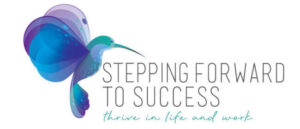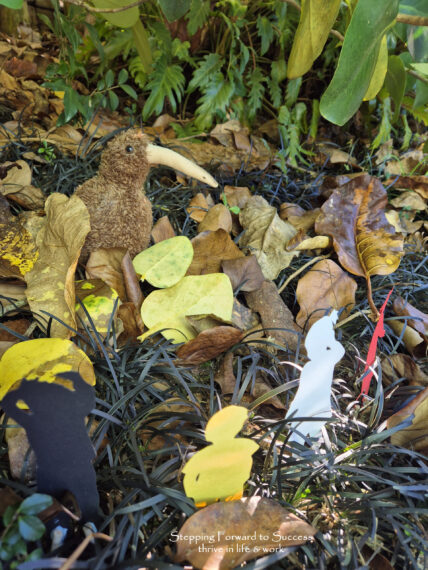New Zealand is a fantastically diverse blend of people, cultures and backgrounds.
As Kiwis, it is important that we recognise the amazing breadth of diversity that we have within our shores.
And for young minds, the ECE sector is a great place to begin this journey.
Embracing inclusivity and diversity, and ensuring that every child feels valued, respected and integral to their learning environment, sets the children up for a great future.
So, it is vital to have a deep understanding of inclusive teaching practices.
Not only do they enhance the educational outcomes for the children, but they also contribute to a strong sense of belonging and wellbeing.
Let’s explore the idea of inclusive teaching practices further and how you can incorporate key ideas into your provisional teaching journey.
What Are Inclusive Teaching Practices?

In New Zealand, ECE is grounded in the principles outlined in Te Whāriki. These principles emphasise holistic development, empowerment, family and community engagement, and relationships. As you well know, within this framework, inclusivity and diversity are not merely add-ons but foundational elements.
This means that teaching practices should reflect and celebrate the rich tapestry of cultures, languages and identities within your centre. It also means that every child, regardless of their background, abilities or needs, should feel valued, respected and included.
Key inclusive teaching practices include:
- Cultural Responsibility: ensure multicultural inclusion by encouraging children and their whānau to share cultural traditions and languages, along with the integration of te reo Māori and tikanga Māori into daily activities.
- Child-Centred Learning: Learning plans that suit the needs of each child at your centre, along with a flexible curriculum that allows for child-led exploration and discovery.
- Fostering Relationships and Peer Interactions: Create strong, positive relationships within your centre – that includes teacher to student and whānau relationships. Promote cooperative play and group activities, creating opportunities for the children to share and work together.
- Inclusive Environments: Create safe, welcoming, adaptable learning environments that are able to meet the needs of all children, physically and emotionally.
- Family and Community Engagement: Build strong, collaborative relationships with the families at your centre and within your local community.
- Professional Development: With ongoing training and reflective practice, you can ensure you are continually evolving your professional skills to meet the needs of the learning environment.
- Supportive Teaching Strategies: To ensure every child can participate in learning activities, use a variety of teaching strategies to meet the diverse needs of all learners. You can make this happen by understanding each child and how they learn best so that you can provide learning opportunities to meet their individual needs, along with utilising inclusive communication techniques like visual aids or simplified language.
Creating A Sense Of Belonging
Your centre will be a major part of the children’s lives, so it is vital they have a positive experience while there. A fundamental aspect of inclusive teaching is creating an environment where every child feels like they belong. This sense of belonging is essential for their social and emotional development, and can also lay a foundation for life-long learning.
Here are some effective ways you can foster a sense of belonging:
- Inquiries: One of the best ways to make changes at your centre is to undertake an Inquiry focused on the area of inclusivity. You can establish what has been worked on in the past and explore ideas further to create a truly inclusive space for children to belong.
- Relationships: A huge part of belonging is feeling connected to the people that you see every day. It all comes down to forming strong personal relationships with the children and your colleagues. Take the time to greet everyone warmly each day, showing a genuine interest in their lives, and familiarise yourself with the individual interests, strengths and challenges of the tamariki.
- Whānau Involvement: While your centre will be a big part of the children’s lives, their whānau is an even bigger part for them! Encouraging family involvement builds a strong centre community. This can be done through open communication and inviting whānau to join the children for experiences and events at your centre.
- Inclusive Environments: In order to feel like they belong, children need to feel comfortable in a space. That means it needs to be accessible for all abilities and backgrounds. Adapt your spaces to meet those diverse needs and make them more culturally accessible by celebrating the various backgrounds of the children in decoration and activities.
- Child-Centred Practices: When children get to make choices about their learning activities, they feel empowered and valued. Luckily, there are plenty of ways to set up activities that allow this autonomy and ability to respond to their needs and preferences.
- Positive Centre Culture: Respect, kindness and empathy all go hand in hand with inclusivity and fostering a sense of belonging. When everyone is treated with dignity and their achievements and personal stories are acknowledged, they thrive in a culture of belonging!
Professional Development
Ongoing professional development is helpful for many areas of ECE, but it is especially vital when it comes to inclusive teaching practices. It can equip you with the skills, attitude, and knowledge to create a supportive and effective learning environment for all children.
Continuous learning and improvement through professional development will ensure that you meet the diverse needs of the tamariki at your centre, able to foster a sense of inclusion and belonging for all.
So, where can you find these professional development opportunities?
Luckily, as a founding driver of Te Whāriki, inclusion is a topic that a lot of education experts are passionate about. There are plenty of opportunities to develop your skills in this area. The first place would be with your centre assigned mentor as they will likely have a passion for this field too. You’ll also have go-to resources accumulated during your teaching journey so far.
Then, there are fantastic resources available online via reputable sources like The Education Hub and ECE Learning Unlimited. Able to learn anywhere and at a time that suits you, the webinars and courses can help you to further your development in an accessible way.
Finally, you can also access the skills of an external mentor to aid your professional development in this area. As an ECE Mentor myself, I can guide you. With plenty of experience and expertise in inclusive teaching practices, I can work with you and your centre assigned mentor to create practical and effective development opportunities.
If this sounds helpful to you, reach out to me for a personalised discussion today.
I have available a variety of packages to choose from and to get started with the Kete Ako program offering personalised guidance, direction, emotional support and professional development. This is a 6-month program to gain a good understanding of the inquiry process and areas you are wanting to focus on.
You can discover more about external mentorship via the Kete Ako program that is for you. Find out more about it here and partner with me for success!
I also have resources that can be added to your toolkit. Click here to read more about the Roadmap or click here to purchase the Roadmap to Certification e-book for Provisional Certified Teachers. Alternatively, if you are wanting to learn more about my package, you can also reach out today.
Useful links:
My Website

